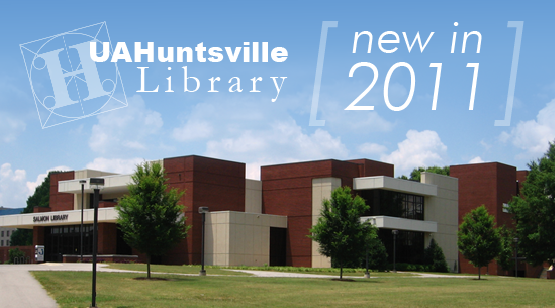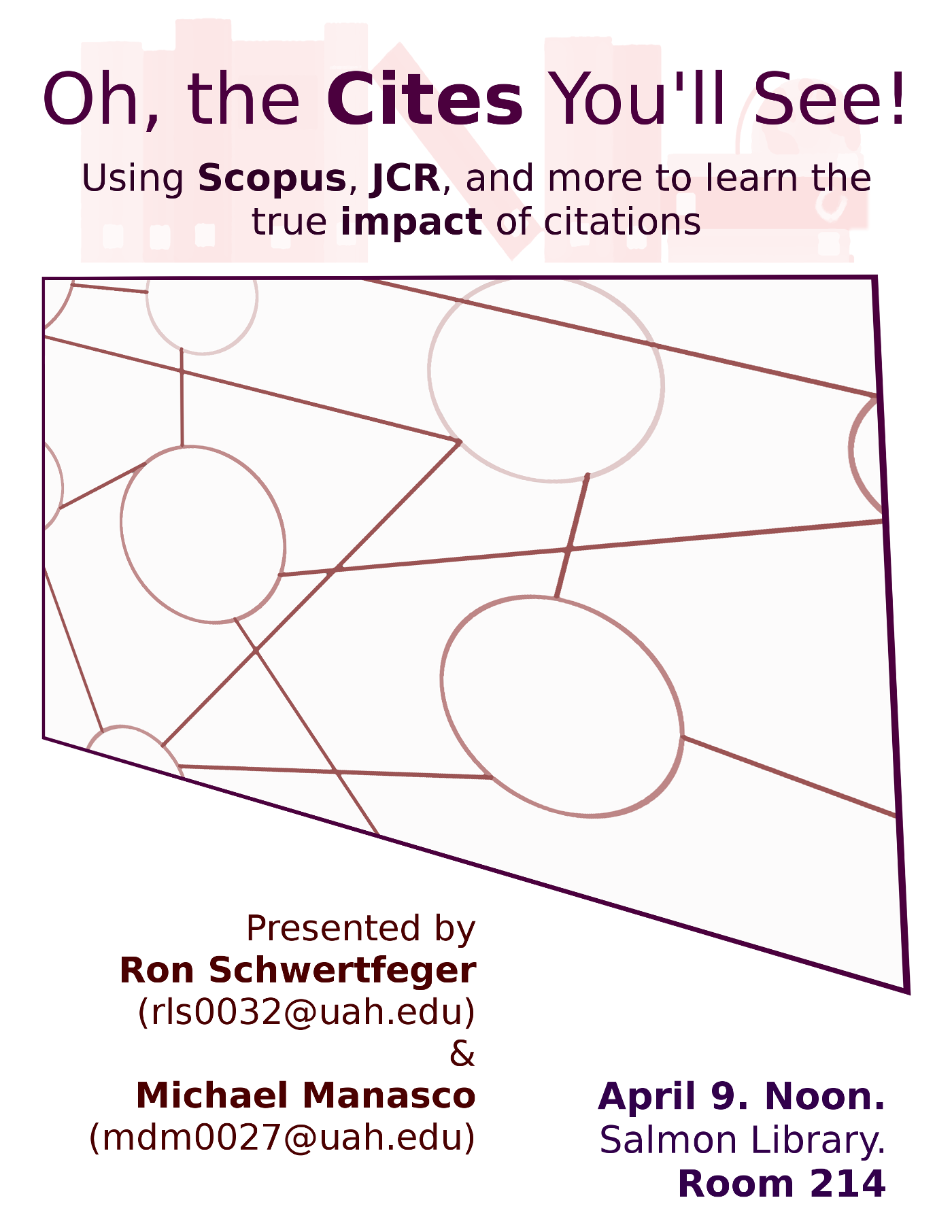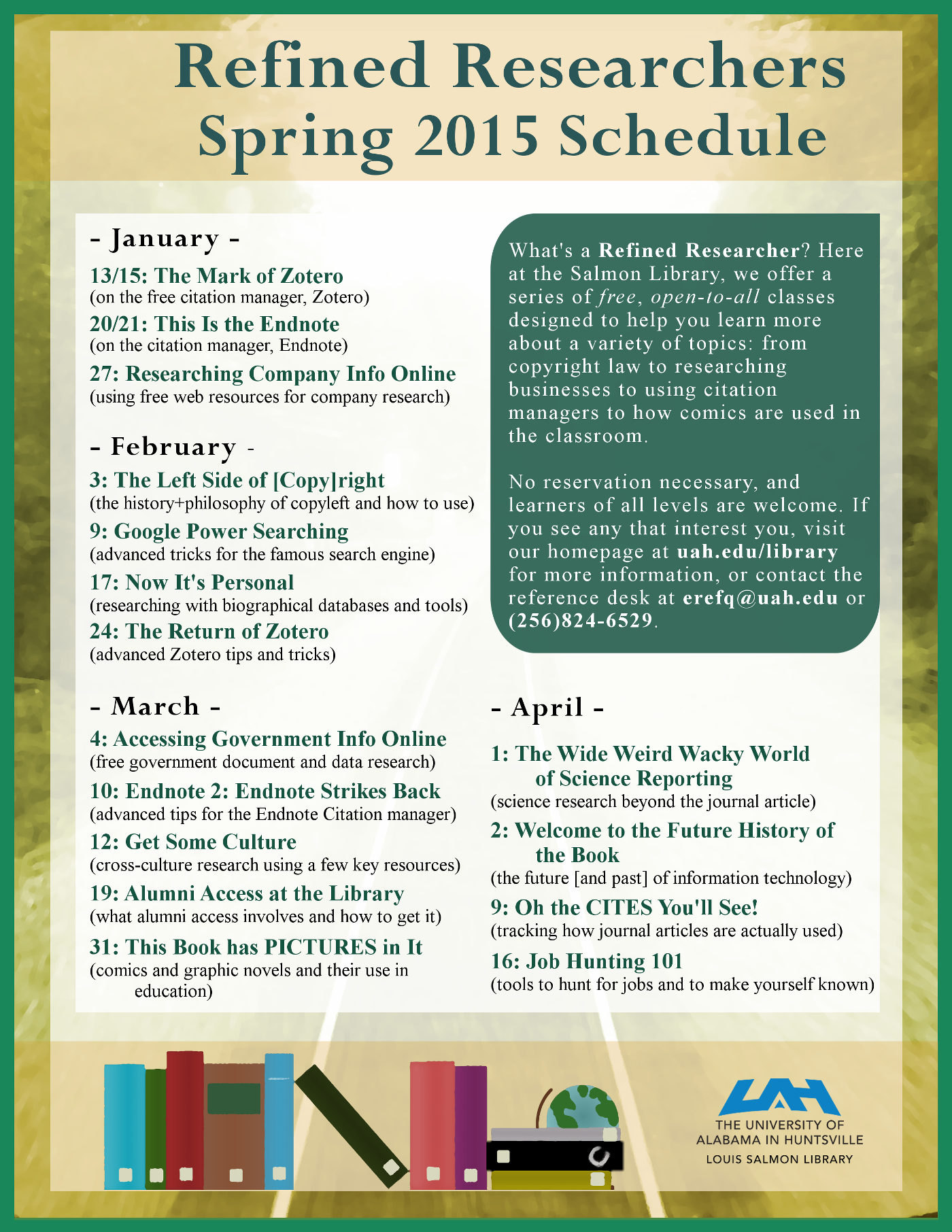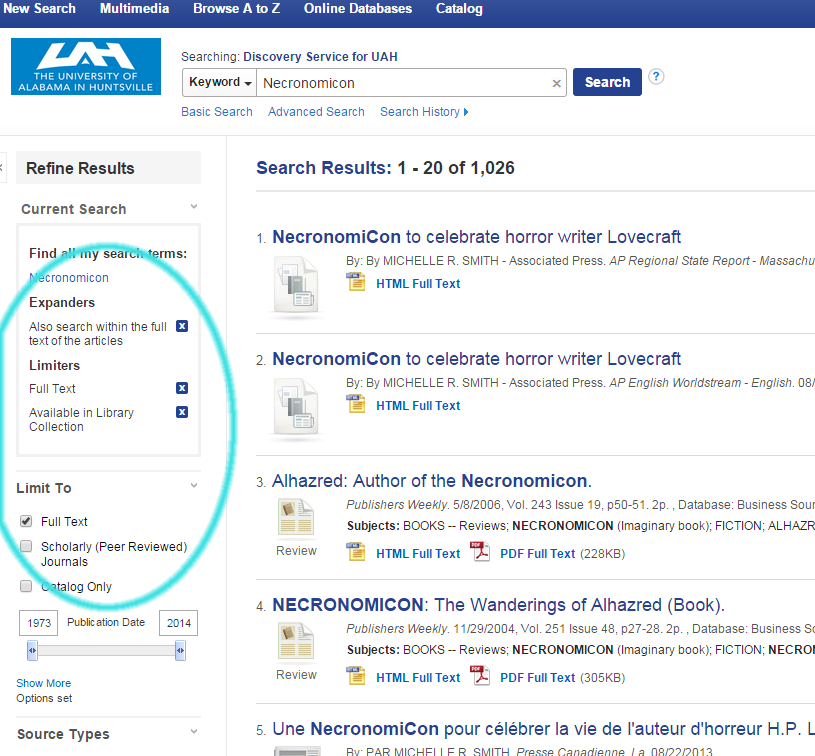
It’s going to be an exciting academic year of change at the UAHuntsville Library in the 2011 – 2012 academic year. We have a number of new features and resources this year, some which are already here and some that are coming soon.
New furniture, workspaces, and improved study rooms are coming to the library in October.

We hope to have this all installed in the building during Fall Break, and are planning an Open House the week of Homecoming at UAHuntsville. More information will be coming, but we plan on having a free concert in the building or just outside with local Indie Folk / Acoustic band Ashlyn Maine.
Read more about our new furniture at our earlier blog post, and become a fan of Ashlyn Maine on their Facebook page.
Scopus Database Now Available
 Please go to http://www.scopus.com/home.url in order to access the Scopus database now available from the UAHuntsville Salmon Library. Access has been set up via IP Authentication (on-campus only).
Please go to http://www.scopus.com/home.url in order to access the Scopus database now available from the UAHuntsville Salmon Library. Access has been set up via IP Authentication (on-campus only).
Scopus, launched in November 2004, is the largest abstract and citation database containing both peer-reviewed research literature and quality web sources. You can find a wealth of easily accessible information about getting the most from your Scopus access, including demos, tutorials and downloadable user guides at http://info.scopus.com
New Vending Machines on our First Floor
Students have long asked for them, and we’re happy to finally have three new vending machines available on our first floor! There is a can machine, bottle machine, and also a snack machine available behind the copy machines on the first floor. Drinks range in price from sixty cents to $1.25, and snacks are available for up to a dollar.
New eBook collections from Springer
A big thank you to the Network of Alabama Academic Libraries (NAAL) for our new access to selected 2011 eBooks from Springer. Ebooks are available in the following collections:
Access Journals from SpringerLink
You have access to approximately 1700 American journal titles from 1997 to present on SpringerLink! The world’s most comprehensive online collection of scientific, technological and medical journals, books and reference works.
Get Searching or Click here for SpringerLink’s featured journal titles by collection
Improved Mobile Access
 We’ve improved the mobile version of our website optimized for iPhones so that you can now enjoy more efficient access resources such as LibGuides, Academic Search Premiere, and much more. You can now also search our catalog directly from your device as well!
We’ve improved the mobile version of our website optimized for iPhones so that you can now enjoy more efficient access resources such as LibGuides, Academic Search Premiere, and much more. You can now also search our catalog directly from your device as well!
If you are using an iPhone or iPod Touch, you will be automatically redirected to the mobile version of our site. We also hope to have a version compatible with Android devices soon.
We hope you are all settling in well for the new academic year at UAHuntsville! Remember, you can Ask Us Anything at the Library. Be sure to Like us on Facebook or Follow us on Twitter for more information. You can also get in touch with us through either of those resources. Even if the answer to your question isn’t in the library, we can point you to the best resource on campus to help.














 Please go to
Please go to 